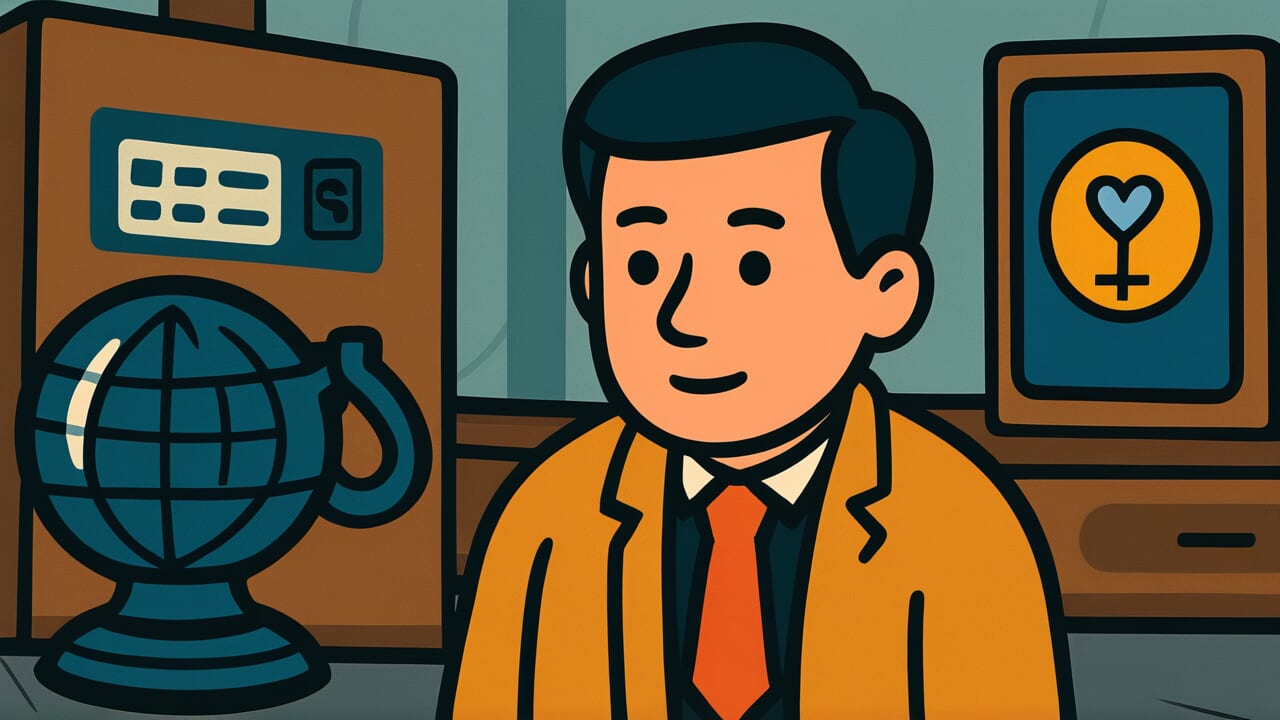How to Read “Without a steady income, there is no steady heart”
Kōsan naki mono wa kōshin nashi
Meaning of “Without a steady income, there is no steady heart”
This proverb means that people without stable property or income find it hard to maintain proper morals. When life is unstable and you worry about tomorrow’s food, people tend to chase immediate benefits. They lose the ability to make good judgments.
This saying appears when discussing social policy or education. It’s also used when thinking about developing people. Many quote it to support the argument that stabilizing life comes first.
Today, people use it when explaining why employee treatment needs improvement. It also comes up in poverty discussions. The context emphasizes recognizing economic foundations, not just preaching morals or spirit.
People understand it as words showing a balanced view. It looks at both human ideals and reality.
Origin and Etymology
This proverb likely comes from the ancient Chinese text “Mencius.” Mencius was a thinker who greatly contributed to Confucianism. He deeply examined human nature and morality.
“Kōsan” means “fixed property” or “stable livelihood.” “Kōshin” refers to “an unchanging righteous heart” or “moral conscience.” Mencius taught that people need life stability first before they can live morally.
Behind this thought lies ancient China’s realistic political view. Simply preaching morals to people suffering from hunger and poverty means nothing. Stabilizing people’s lives first is the first step toward creating a good society.
This idea reached Japan long ago. Rulers and educators valued it highly. Confucian scholars during the Edo period quoted these words. They explained the importance of stabilizing people’s lives.
People have passed down these words for generations. They contain deep insight that faces human reality, not just idealism.
Usage Examples
- I think we should raise new employees’ salaries. Without a steady income, there is no steady heart—they can’t focus on work when life is unstable.
- Education matters in developing country support, but as they say, without a steady income, there is no steady heart. Supporting economic independence should come first.
Universal Wisdom
People have passed down this proverb because it contains deep insight into human nature. We all ideally want to live righteously. But in reality, when survival anxiety controls our hearts, that ideal easily wavers.
This doesn’t blame human weakness. Rather, it’s a calm recognition that humans are like this. Just telling hungry, suffering people “don’t steal” solves nothing.
First give them food and arrange their life foundation. This shows an extremely realistic understanding of humanity.
This wisdom shows that morality and economic stability don’t oppose each other. The latter actually forms the foundation for the former. Pursuing ideals requires a realistic foundation first.
This principle applies to both individual life and social management.
Our ancestors knew this truth. Humans aren’t angels, but they aren’t devils either. When the right environment exists, most people naturally choose the right path.
This balance of optimism and realism is the universal value this proverb holds.
When AI Hears This
The human brain automatically switches thinking modes when sensing survival crisis. Specifically, the prefrontal cortex that handles reason and moral judgment decreases activity. The amygdala, a primitive emotional center, takes control.
Neuroscience research shows something interesting. Give subjects feeling economic instability a moral dilemma. They make selfish choices about 40 percent more often than stable subjects.
Just worrying about money makes the brain enter “survive this moment” mode. It rewires to prioritize immediate benefits over long-term trust and social norms.
What’s more interesting is this switch happens regardless of personal will. In Maslow’s hierarchy of needs, when physiological and safety needs aren’t met, higher needs become harder to process. The brain physically struggles with esteem and self-actualization needs.
Moral conscience is a luxury function that consumes massive brain energy.
Over 2000 years ago, Mencius declared “without a steady income, there is no steady heart.” He experientially saw through this neuroscience mechanism. The reason poverty measures should come before moral education lies in brain structure itself, not sermons.
Lessons for Today
This proverb teaches us to arrange foundations before discussing ideals. This perspective matters in your own life and in relating to others.
For yourself, don’t feel ashamed about stabilizing your life foundation first. Chasing dreams and ideals is wonderful. But minimum economic stability lets you move forward with peace of mind.
Don’t rush. Building foundations step by step ultimately becomes the shortcut to big goals.
For others, have the kindness to understand their situation. When someone might lose their way, can you look beyond preaching? Can you see their economic and mental difficulties?
True support might start with stabilizing their footing.
This wisdom lives when viewing society too. Moral education matters, but creating an environment where people live securely ultimately builds a better society.
We who live today need eyes that see both ideals and reality.



Comments